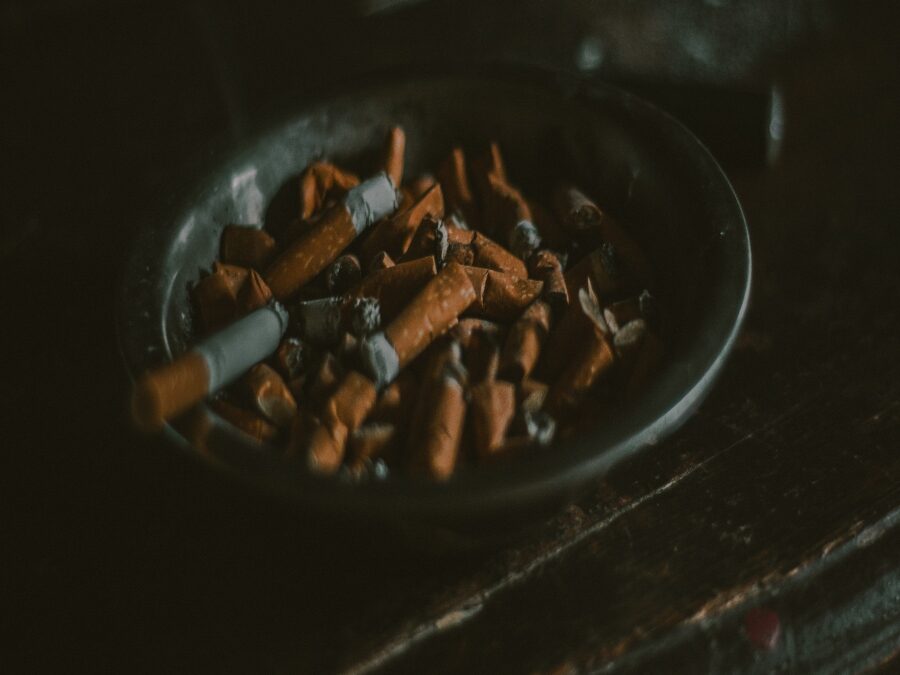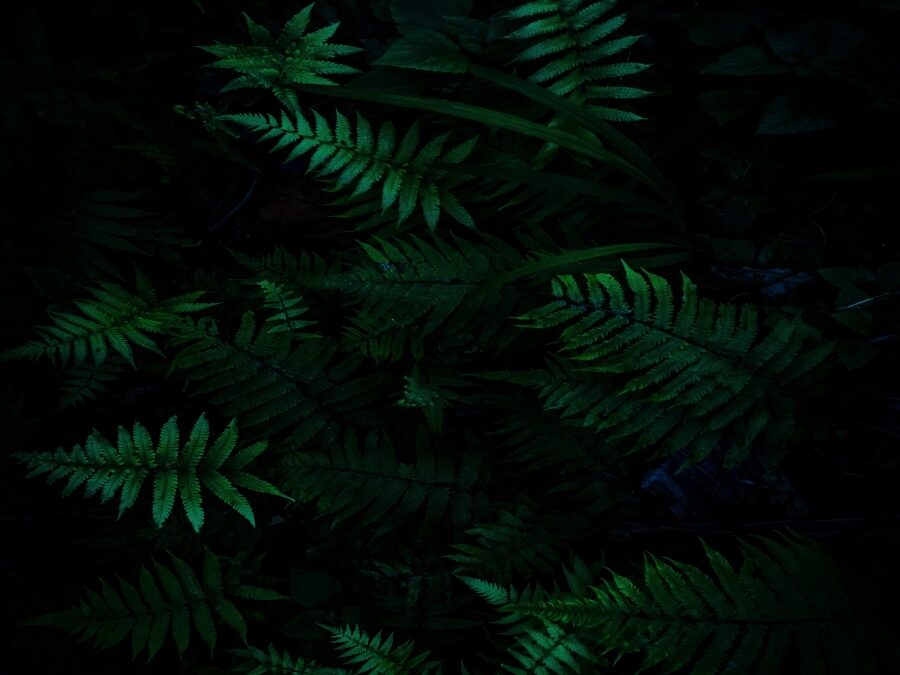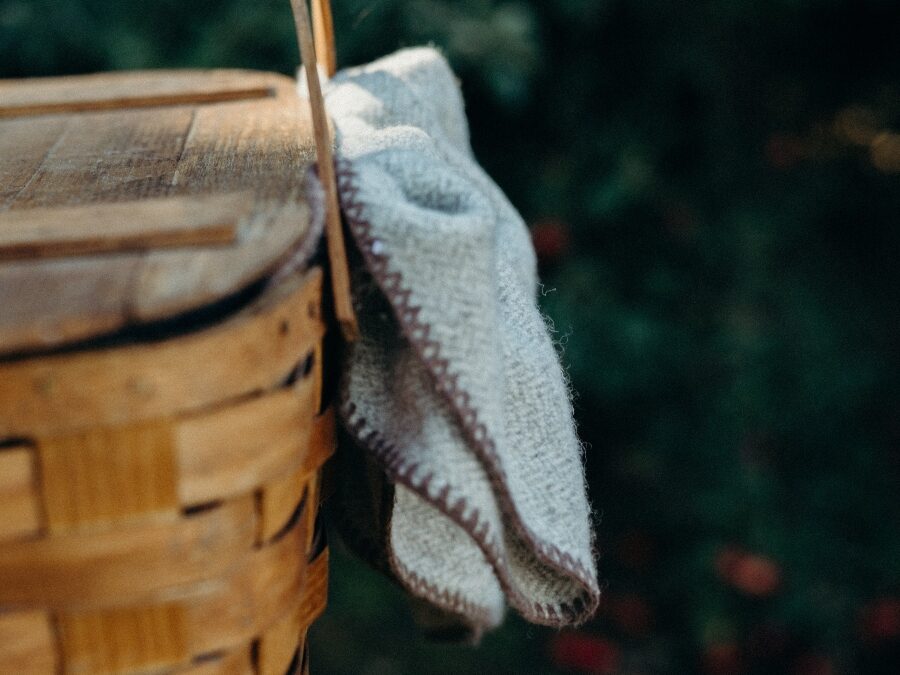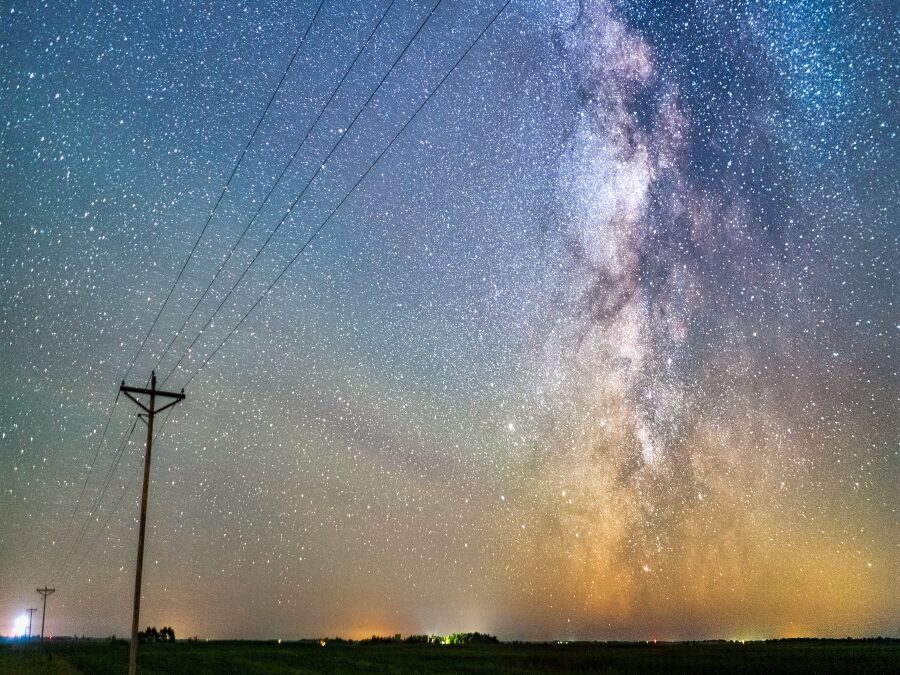
by Christopher Allen | Nov 3, 2021 | flash fiction
My father tells me the constant rush of water through our town is the whoosh of the world going round. The snow in the mountains never stops falling, never stops melting, never stops raging into the valley. Stern and roiling. Like the white noise of God and reason, fathers fighting.
Silence in this town is never silent. Even now, when my own son asks why we’re leaving, I don’t hear him at first over the tinnitus of the river. We’ve never known anything but this town and this churning—this turning of the world—so the question has burrs. Why should we leave, when we have everything we need here? Except silence.
“And where?” he shouts. “Where to?”
“The moon,” I say, forgetting my son hangs on my every word.
The next morning my son brings a list to the breakfast table: “provisions”. He says he’ll share his list with me since I probably haven’t thought of making one myself, and he’s right. My mind is well beyond the town, but my bags are still in the hall closet. Empty. I don’t even know what I’d take.
If I’m honest, I haven’t figured out where we’re going. I know nothing of the world except that its turning is relentless and loud, but there must be a place where silence is softer, where I can hear my thoughts parsed from the grammar of Providence.
My son lifts a two-quart mason jar onto the table, pats the lid. “Air!” he says. It’s the first provision on his list. A good one for the moon. We’ll have to use it judiciously.
Best air in the world, my grandfather used to say. Negative ions. Next to the river. Said standing close refreshed his soul. I’m not sure I could explain what a soul is if my son were to ask, but he’d never ask. Would I even hear it through this thunder?
“Animal Crackers!” he shouts and shoves a box, less than half full, onto the table next to the jar of air. “We can make more,” he adds, reading my mind, because he’s seen me and my father make more cows from cows. Pigs from pigs.
We’ve always been farmers. Making more is just part of who we are. It’s in the blood that thunders from father to son, from son to son.
“The river!” My son holds out his hand, a puddle rippling in the dimple of his palm like an alpine lake. He bends his ear to it and listens. “I can hear it,” he says then gingerly holds his hand out to me. “Can you hear it?”
A slightly different version was originally published in Pure Slush

by Cyn Nooney | Nov 1, 2021 | flash fiction
1. During the space race days your parents sip Maxwell House in the morning, Beefeater before dark. Through bedroom walls you hear talk of traveling to the moon, Viet Cong soldiers, and Brezhnev. How it’s another Bay of Pigs and screw that. Over Sloppy Joe casserole ask, What’s a Commie? Stick your tongue out when your brother flips you the bird. When no one answers, wonder aloud where the pigs are, may you pet them? Walk the dog, your mother will answer.
2. On the way to Dunkin Donuts after church, notice all the beat-up Chevys and Impalas plastered with bumper stickers that say Bring Home Our POWs. Observe the drivers’ twitchy fingers, pinched lips. Ask your father what POW means. Pronounce the letters like a pistol’s report—pow pow pow. Not like an acronym. You don’t know what one of those is but you do know about guns. Right then your brother will jam a fake one into your ribs—point an index finger at his crotch. If your father pretends not to hear, ask again. Louder. Just a little bit. With the exhale of his Winston filter learn POW means unlucky. Like you, your brother will hiss. Now roll over. Play dead.
3. Down the street from your house is an army base called Fort Carson. You’ve always liked the sound of that. Anything with fort in it sounds fun. Your brother and his friend build one in the backyard, scrawl on the door No Girls Allowed. For Halloween let your mother dress you up as a flower child, smear gaudy rouge across your cheeks, press a faded pillowcase into your palm. Hoist the cardboard sign she painted, Make Love, Not War, when you step onto porches and ring the bell. Some of the women who answer the door will shriek before slamming it in your face. Ask your mother why they didn’t give you candy. She will sigh, It’s all rotten anyway.
4. At the midnight drive-in where your parents believe you’ll conk out while they watch Goodbye Columbus and Easy Rider—prove them wrong. Peer spellbound in your flannel pink pajamas from the jump seat of a VW Bug until you can’t contain yourself any longer and ask in a squirrely voice, What are they doing? Nobody knows, your father will say. Close your peepers. Everything will be over soon. When your brother pops up, slug him hard. He will smirk, Someday you’ll do the nasty too.
5. Each month when the magazine arrives wrapped in brown paper, note how quickly your father snags it from the pile of mail and hoofs it downstairs to the tiny half-bathroom. See your mother fill a wine glass to the brim, carry it to the couch, mumble in the dark, Nothingbutamansworld. Yell after your father, Why can’t you read that up here? Let me be, he will call over his shoulder. Give a man peace.
6. One Saturday when you can’t fall asleep, tiptoe into your brother’s bedroom, nudge him awake and ask what will happen if you don’t want to go to the moon. Admit you have no interest in living on cheese and floating around weightlessly. I’ve never been good at floating, you say. What will happen if I don’t want to go? He’ll roll over and belch Rocky Mountain Coors piss-breath. Simple, he will mutter as he wipes crust from your eyes, you will end up all alone.
7. Toward the end of ninth grade find your mother spread-eagled on the couch, eyelids fluttering, the balding neighbor from across the street rummaging beneath her skirt. Like a pig rooting for truffles, you tell your brother—they didn’t even hear me come in. How can I ever look at her the same? Let it slide, your brother will urge. She’s probably trying to feel something. Or get even.
8. After college graduation visit your brother in a windswept apartment facing the sea. Clasp his shadowy hand, whisper, I’m here, ask, What can I do? He is gossamer thin, sports blotches the size of cigar burns. As he puffs each word of, Please don’t remember me like this, your parents—no longer married—can be heard arguing on the stairs. Bring a blanket to his chin, tease, You’re leaving me with them? Step toward the door to let them in, stop when he commands, Not yet—first you must promise. Pledge with your whole sloppy heart then say, But I’ll be mad at you forever. Flip him the bird. Watch his papery lips crack into a grin. Hey, you will hear him whisper—forever sounds good.

by Shareen Murayama | Oct 28, 2021 | micro
When the semi flipped on its side, cows were launched like bowling pins across multiple lanes. Several died inside the truck. Eventually, many uprighted like dice. The driver lay dying, his belly forming pleats on the steering wheel.
After slamming into an ice freezer, a brown-and-white heifer shook its head. Some were caught four miles down the highway, its diminishing lines going somewhere, going nowhere.
The dying driver wished his girlfriend could know the squeeze of his hand. Her stained lips that hung on his bathroom mirror would close the night for him. Maybe if he weren’t dying, she’d reconsider his question.
Outside the hooven beats padded nothing like police or ambulance. Just glacial were the fumes inflating the shattered cab. For three days she had ghosted him, through mud-turned fields, snow sugared on the windshield—even wipers lied: Come back, come back.
Even if she’d occasionally squeaked too much whiskey; never dividing equally his and hers. He was everything she didn’t want for the long ride.
Before the trailer tipped over like cows, before the cows burst through the roof like a birthday cake surprise, he remembered how he’d gifted her open stars, piped buttercream around a silver band.
The brown-and-white appeared on the other side of the shattered glass. How he wished they could see the view from his side—muted lights or setting stars, the gauzy snow lacing his eyes shut.

by Edie Meade | Oct 25, 2021 | flash fiction
It is a cast-iron frying pan filled with cigarette butts. The handle is just the right size for my hand and just out of reach on the freezer. It is an ashtray. That’s all it is, and I don’t want it. “You don’t want that,” Momma has told me many times, so I try not to. Momma is smoking a cigarette and quartering chickens on the top of the deep freezer, where the bloody water runs down yellow, yolkish. She moves the frying pan closer to her when I come near but does not wipe the trickle. I pat the freezer, so cold inside but so warm along this wall, and the chicken water wets me. It is a tight spot at the back of the house where the kitchen meets the back bedroom, where Daddy keeps the fire burning with morsels of tractor tire.
I stand in the bedroom doorway and look in at Daddy, who smiles as if he has just come back from far away. I smile back without anything to say. A brown blanket over the window keeps the room amber-dark all day long, but I’m not allowed in there except to say good night. It’s not time to say good night, so I watch Daddy polish his boots from the threshold. He sits on the edge of the bed, legs crossed like a woman. One leg has a lot of muscle but the other one is thin because he stepped on a grenade in Vietnam. He crosses the thin leg over the top and he can’t feel whether it’s uncomfortable or not. The thin leg doesn’t fall asleep. It prickles all on its own, he says.
On the footboard of the bed, a cut-crystal jewel collects ashes. It’s an ashtray, too. Daddy’s cigarette is burning into a rope of ash all by itself. “Come on out of there,” Momma says, slopping something into the scrap bucket. Her arms have the same goosebumps as the chicken skin. I edge back on the threshold and pull a wet pinfeather from the ruching of my blouse. The facets of the crystal ashtray turn the blanket-curtain light lavender, yellow. If I had my way I would stand at the footboard, the warmth of the fire on my back, and look through the glass at Daddy. But this is as close as I can go until it’s time to say good night.
I don’t know why Daddy polishes his boots, but he does it every day. His boots are massive, black, with a hundred eyelets and a mile of laces. Their stiffness helps him walk even if he can’t feel much in his leg. On the sole of his thin-leg boot, he tacked on a wedge of old tractor tire, to make his legs the same length. It helps even out his limp. Daddy polishes his boots with boar-bristle brushes that he keeps in a wooden shoeshine box. His box is full of shoe polish tins, round ones with crimped lids I can open with my teeth. I cannot open the tin of Momma’s sewing supplies, having chipped my tooth trying. Tins are hard to open for a reason. Daddy hands the polish to me and lets me try. He smiles as my mouth puckers. Then my chicken-water hands slick up the lid and his face darkens.
Vietnam is a place, and also a war before I was born. It is located just past the bedroom doorframe. It is as solid an object as an ashtray and emits more smoke. I don’t want it, so I try to leave it alone, forget about it.
Like many things, shoe polish is bitter and leaves a lasting residue. “Don’t put that in your mouth,” Momma tells me. She pinches her words around the cigarette on her lip and I notice she has moved the frying pan again. In another house, perhaps one that existed before and further away from Vietnam, it would be a child’s toy, perfectly sized for cooking pretend eggs. But in this house, it is an ashtray.
I wipe the tin on my blouse until the kiwi on the top is bright. The black crescent in my ruching won’t come out, though Momma will try. I return the polish to Daddy’s palm and calm returns to the facets of his face.

by Marissa Hoffmann | Oct 21, 2021 | flash fiction
I’d use a soda siphon at cocktail hour, and you’d only know I’m speaking when my chin quivers. And it wouldn’t feel like I was playing a solo eternal game of, ‘would I rather’. I wouldn’t need to pass the days until I see you again—until I lift you sleepy from our Thunderbirds-marathon—asking myself, would I rather a bullet in the back escaping? Or a surprise jab in the stomach with a sharpened biro?
And (hypothetically speaking), once I’d scaled the wall of this place that isn’t Tracy Island, ripping my stomach on the barb, I wouldn’t need to ask, would I rather a splashy-front-crawl for speed? Or slower but stealth underwater swimming?
And there’d be no implications to deciding between the images in my mind—a bright green rifle laser beam on a bullseye target on my T1 vertebrae? Or a fairground-style watermelon-head explosion when I come up for air.
Because if this were Tracy Island, and I was swimming away from it, I’d be in scuba gear, I’d be on a mission to save the world from a threat you and everyone couldn’t know about, and an international rescue team would despatch a mini-sub to rescue me if anything got dicey, and there’d be an encouraging orchestral arrangement of violins, trombones and kettle drums, and you’d be on the edge of your seat, you’d know beyond a shadow of a doubt that I’m a good guy, because I look nothing like that poorly-shaven puppet-baddie in the wanted poster.
If this were Tracy Island, there wouldn’t be a shitter by my rock-hard bed. I wouldn’t inhale my cell mate’s sweat and farts and breath. And through these bars, I wouldn’t see a footbridge to a train station where a glimmering ocean should be, and there wouldn’t be a pending application for a suspended sentence.
There’d be personal inter-call wrist communicators, so I wouldn’t miss your teen voice breaking, and you’d tell me about the zoo you’re in, and I’d say, being a man’s a 24-hour game when nobody’s there to protect you.
If this were Tracy Island, there would always have been sunshine and bird song, always brothers who had my back, palm trees, and a breeze. I’d have had a proud, proud father. And though my lips wouldn’t move when I say, I love you Son, the strings that controlled me all my life would be visible.

by Anna Gates Ha | Oct 18, 2021 | flash fiction
During a commercial, I ask you to tell me about nights in the jungle. We are blue and then white and then green—the quick, flickering light of television on bare skin.
Rain forest, you say.
I like jungle better. I mouth it into the lip of my beer. The way it digs like a shovel in the beginning. The way it presses against the roof of my mouth in the middle. The way it kisses the back of my teeth at the end.
Tell me.
You say you spent every night looking through your camera with the night vision on, the forest turned Ghost-Buster green.
We watch: A man goes into the wilderness with nothing but a metal pot to boil water, and he builds a life, a temporary life, out of this nothingness, this chaos of trees and weather. The first day, he builds a banana-leaf shelter, its roof a braided puzzle. He weaves a delicate nest of twigs in which he grows a fire, not for warmth, the man says, but to keep the poisonous snakes at bay.
Were you scared? I ask. I don’t know why I want to hear you say it.
Nah, you say but turn to look at the only window in my apartment.
We watch: The man eats black beetles and a snake that he stabs with a spear. A spear that is nothing more than a very sharp twig. He rolls off the snake’s skin like he’s undressing a woman’s leg, discarding the balled-up pantyhose on the ground, the flesh pink and pulsing underneath.
They choppered in supplies for me once a week, you say. Oats and water and powdered Tang. I had a generator for my laptop.
We watch: A night shot, the man glowing green, his face bright and overexposed. It is raining and his fire has gone out. He squats beneath the banana-leaf roof and blows into his cupped hands.
I’ve never felt closer to death, he says.
We watch: The man in a helicopter, chartering back to civilization. It has been two months. He is dirty and half naked and thin (the screen flashes to a before picture, his cheeks puffed with fat). He looks at the camera and says, I’ve never been more alive, man. Never in my life.
Have I ever felt these things? Alive, dead.
Once, my train got stuck in the tunnel beneath the bay, and my heart beat like something was happening. The lights went out and people clicked on their phones and the cabin filled with white, dancing rectangles. A baby cried and an old woman next to me said she thought she might faint. There was the distant smell of burning oil.
Then the lights came back on, and we arrived at Embarcadero five minutes later.
I think about telling you. I don’t.
The show ends, and you turn off the TV. The light from the street pours at us, licks our edges like frost.
Then you’re looking at the window again, and say, There was this one night.
I slide my legs down so my stomach is against yours, my chin resting on your chest. You smell like eucalyptus.
You say your camera was busted. It’s damp in the rain forest and the equipment doesn’t like it. You say you heard something circling the camp. Around and around and your camera was busted and you couldn’t do anything but sit there and listen and wait for morning.
It could have been a panther, you say. Or it could have been nothing. The mind plays games when it can’t see.
Then I’m on my phone, looking for a night vision app. I find one and download it while you’re lying with one arm behind your head. I turn it on, set my phone on the dresser. I pull the comforter off my bed and throw it over the window. The room goes dark.
And you’d think that it would make us cautious: something watching us. But it doesn’t. It makes us brave. Reckless. It makes us who we wish we were.
We hunt for each other, blind and laughing at first, but silent and breathing deep once I’m on top of you, your hands pulling on my hips, my hands pressing into your shoulders.
I imagine what we’ll watch later. If we’ll look like panthers or prey in the jungle. Our recorded bodies pixelated and green.

by Alicia Dekker | Oct 15, 2021 | flash fiction
You don’t remember Grammy saying the words, although you were there. You were the baby. You’ve heard the story a million times, if you heard it once. “We don’t boil babies,” is the punch line—at least the way your mother tells it.
Your mother is a great storyteller. She backs that tale all the way up to the afternoon picnic the day before you were born. Oh, she tells you, she stuffed herself. Sauerkraut and cracklins! Pork sausage and chili! She knew she was in labor but still, she ate. She was eighteen. What did she know? She could have asphyxiated when they put her under—she knows that now—because they did that back then, you know, put you under.
And your father? He was at the picnic. But then Pappy loaded him in the pickup and hauled him back to school. Dried manure flew from the truck bed as they bounced down the lane. Oh, they all knew she was in labor. But Pappy said: What was he going to do? Best not lose that scholarship.
(You have questions you never ask, because you know better than to interrupt your mother’s performance. She has turned her light on you, and you soak it in like a moonflower. But you were born on a Tuesday. It’s hard to imagine Pappy, with his leathery farmer’s tan and oil-soaked cuticles, sanctioning a mid-week picnic.)
But I digress, your mother says, time and time again.
There are photos: Your mother in a voluminous printed dress, lost and wide-eyed in a sea of wrapping paper, ribbons, and a highchair. Her mother, younger than you are now, in severe cat-eye glasses and modest beehive. Your aunt, fourteen, looking smug.
And then there is you: In black and white, squinting at the camera through a glass bassinet. Swaddled and semi-sleeping. All that hair! You didn’t cry. You were a good baby.
Thank goodness Grammy came into the kitchen when she did! Your mother chuckles as she says this. She was only eighteen. What did she know?
You picture yourself: Tiny arms and legs writhing like points of a flickering star. Jerky infant kicks and salutes from deep within a tin tub on the kitchen table.
Thank goodness Grammy came into the kitchen when she did. Your mother laughs. What did she know about bathing a baby? Just that the water should be sterile… But Grammy took the steaming kettle from her hand. Your mother was only eighteen.
You are almost twice that age when you tell this story at a dinner party. You laugh where your mother taught you. Forks pause, mid-air; wine glasses return gently to the table. That’s a terrible thing, your friend’s husband says. Was your mother ill?
You stab something—a bit of lamb? a Brussels sprout? —on your plate and shove it in your mouth; make a show of chewing. Keep chewing until the conversation moves on, and then tuck the smallest buttered potato in the hollow of your cheek, for the rest of the meal, while you reconsider all the other funny stories your mother told you.

by Jonathan Cardew | Oct 12, 2021 | micro
There were aliens in What Cheer, Iowa, aliens with platinum skin and tentacles adept at probing populations, aliens opening up minds and internal organs, flaying off skin and sinew with minimal host damage, aliens who knew their work was little more than basic administration, data entry if you will, the sexier aliens flying off to supernovae and spiral nebulae, slinging atomic splice guns and all that jazz, hunting for dark matter clusters and foundations of the universe kind of stuff, but that didn’t bother these admin aliens, these data-scouring aliens, these pop-you-over-the-head and really try to understand you ones, because they liked the scope of work in rural midwestern areas, the sky was big and the topography was never undulating, minds fell open like dried corn husks revealing stars and island universes, and the weather was nice, the wind whistled over fields of poppy and soy, the sun melted into a pencil-flat horizon, just one sun, always dissolving, so no they were not down in the dumps about their lot in life, their mission to log sentience, punching in numbers on triangular devices while the mavericks hopped wormholes in Andromeda, because sometimes a local would awake in the middle of a probing, eyes peeling open and uncertain, analyzing, figuring it all out, this corner of a corner of a corner of a diminishing galaxy.

by Alexandra Blogier | Oct 8, 2021 | flash fiction
First, blanch the peaches. Run them under cold water to peel their skin away. Feel the flesh underneath. This is the last thing your mother taught you— get your house in order. The heat is urgent and unforgiving, but soon you will be far from here.
The storm will hit the coasts, both east and west. The house you are in is on a cliff on a curve of ocean. It will not last the night. The house you are going to is small and without windows, for there is nothing there to see. It won’t take long to get to the Property, acres of land so flat they make you feel desperate and unmoored like you could wander into the grass one day and never be found.
Buying the land was Hannah’s idea.
Maybe one day we’ll look back on these as the dark days of our early adulthood, she had written to you in a letter when she was traveling aimlessly around the country, winding her way around and down. You were twenty years old and could feel someone else’s heartbeat pump through your body. You didn’t mean to get pregnant, didn’t mean to stay pregnant, but you had already stopped making active decisions, already started letting things happen to you. You were a motherless daughter with an avocado inside you, blooming into a daughter of your own. You knew, by then, that those were the last days you had.
When Hannah called to tell you about the land she found in the middle of the country, you knew you would say yes. She was the first person you had spoken to in weeks and her voice over the phone was far away, but she spoke evenly and clearly and you thought of that exhibit you and she had gone to as children, the one where you stuck your hand into a box and felt something spiky or squishy, something completely foreign to your closed eyes and reaching fingers, only to open the box and find it was something familiar, something you had known all along.
Holy fuck, she said, when she saw you. She laughed a wild laugh and buried you in her arms and did not let go, and you knew then that you were bringing your baby into a world you could manage.
You spent the next two weeks sleeping in a tent, carrying water from a well in buckets, watching Hannah haul wood and build your home.
I can help, you told her. I’m not that pregnant.
Any pregnant is that pregnant, she said.
How did you learn to build a house?
How did you learn to make a baby?
She laid down next to you, head to your head, and you braided your hair into one long strand.
What if I can’t do this? You asked. It was the first time you voiced that fear.
You can, she said. You will. She did not look at you. You don’t really have a choice.
And then she was born, your avocado that swelled into a melon and pushed out into the world as a tiny wailing creature, and you knew just what to do. Nurse her when she was hungry, listen to her lungs pull in air. These things were no longer hard. They were choices you no longer needed to make.
You wake up one morning and the spiders have spread their tangled webs across the earth. Their silken husks cover every branch of forest, as though they built their homes as they were fleeing. This is how you know the storm is here. It is a tectonic shift, it is bigger than you thought it would be. It will do more than flood the coasts, it will split the Earth apart and fill it back up with water. Your knees buckle and you are on the floor, thinking, Oh, I didn’t know bodies could do that. You are gasping for air, you are choking on nothing, and then you hear the baby cry out in her crib. The only thing you can do is go to her, kiss her along her fragile spine, and say, listen to your body, listen to what it is telling you. You did not expect the world you shared with her to be like this.
You drive for hours, the baby asleep in the back. The mason jars clink with every turn you make, chimes that tell you there will be enough food for a few weeks, nothing more. The rain has started in sheets, the phones have already stopped working and you know Hannah will be waiting for you, her shadowy outline in the doorway. We can do this, you hear her saying to you, we can make this work. There is a dull buzz in your brain as you get closer to the Property, a frequency you cannot ignore.
Steam rises on the road that is filled not with cars but with people, spilling across both lanes. You wonder if they know something you do not if maybe you should not be in your car but among the swarm. You turn to face the baby. She is staring at you and you say, baby, I’m here. Darling, I’m right here. In months, these people will be nothing but bones pacing the empty earth. The houses you pass will decay down to their lonely frames. How many times can you truly start over? There is one turn left to make, but you don’t stop, you don’t even consider stopping. You do not say goodbye to Hannah, if only because you don’t know how.
Keep going into the darkness. Head towards the coast, already crumbling. Do not slow down, do not look behind you to the land fading fast. Do not calm the baby as she is crying. Do not lift your foot until you are over the canyon. Close your eyes and do not look down.

by John Bensink | Oct 4, 2021 | flash fiction
Jack is sixteen when he sees Marie the first time, then 84 when he sees her again, though he doesn’t know he saw her before, and those caring for him—tolerating him—wouldn’t believe him anyway, for the brain is falling away from the man, who’s always looking blank-inward and couldn’t be seeing much of anything at this point, and clinically sees less every day. But he’s got this crack of a smile lately, thin but it never goes away, as if some long-awaited wish has been delivered and, now that it’s finally here, it can never be taken away.
So weak, this old Marie, and trouble breathing, never without her oxygen tubing, a wispy frail most avoid looking at too long not because she’s not knocking on Death’s Door, she’s pounding on it—so close to stepping through people might fear she’d pull them in with her if they’re too close. But Marie, terrified on her arrival, has calmed; where there was quaking, there is now a gracious serenity. She seems fearless now and…if staff were surprised to see her alive yet one more day, imagine how amazed they are at an insouciant old lady who, despite shuffling to her wheelchair, can’t wait to get out of her room and get to breakfast and then whatever the next thing might be. Carefree, at her age, laughing, even with that old failing heart coming apart like a cheap engine that was never assembled properly to start with.
*
They met in Dayton in 1952 and fell in love in one minute-forty-nine seconds—the duration of their time together. It was a summer trip with his father, checking in on hardware accounts, bring the boy along from Lancaster, let him see some of the world and what his old man did in it.
Girl on a bike, blue fenders, wicker basket leading the handlebars. Green-and-yellow checked dress, blonde braids draping down her back, saddle shoes a lot like his. She kickstanded it carefully out front, Jack watching her from inside as his father showed the owner a new hinge line he repped.
Marie entered and the bell jingled and Jack looked away fast so he could pretend he just happened to look up at the sound but she was onto him even though she was only fourteen—onto him before she realized she was onto him, somehow. There was a snap across the space between them, a cable connecting them and getting tauter as she crossed to the counter and their hearts pounded the same roar.
The owner pushed two quarts and a pint of paint he had mixed forward, then asked if the boy could help the girl load them up. Jack waited for nothing, grabbing the two quarts as she reached in for the pint and body-voltage surged back and forth as his hand grazed hers, then a look, stop-time like in the movies, and he was walking her out front, the two adults going back to their hinges.
After the jolt came bottomless shyness. Whatever this was…it couldn’t be anything, could it—kids, what do they know? The cautious walk side by side, avoiding eyes, then placing the paint in her basket—another hand-graze as crackly as before. Kids, they know nothing, but somehow, they know this is everything. A minute where nothing is said (nothing is ever said, really), then she smiles and nods thanks and mounts her bike and pedals off. Sixty feet away she looks back over her shoulder and there’s Jack, staring, smiling, and she pedals away fast, braids whipping and bouncing on her back in the splashy sun and though they can’t remember it now they also never forgot it.
*
The heart is always at work—monitoring itself for problems and creating solutions. It fixes itself endlessly, a squad of brain, blood, and electricity always working and finding ways to stretch out the beats and outplay the inevitable failure. Marie’s heart started pulling apart when she was eight, but no one knew, it was such a small disintegration—slow, at the cellular level.
She thought he must have moved to Dayton and she would surely see him again. She thought she would go around a corner and there’s that big square face with the apologetic eyes and the farm-boy smile. She thought about him for a long time, but then she stopped thinking about him…but a part of her that she forgot about never stopped thinking about him.
The heart is a genius, but the brain is a hundred hearts—a thousand. So many sectors of Jack’s brain are closed off, nonregenerative, some behind rusted-shut doors that will likely never open again, others down tunnels that have been dynamited and for practical purposes never existed—uncountable collapses that sucked away whole decades of his life, people, places, and emotions included.
But the Ohio girl: the area that holds her is as alive as the day it formed in him—even stronger. Jack forgot about her but it didn’t—it’s independent of him and now, so sturdy and resurgent, when so much of him is gone, it signaled to her; and it signaled, through her, all the people who decide for her. So last week they brought her to this assisted living complex in Pennsylvania, backdropped by the Allegheny National Forest, with a south-facing patio looking onto quilty fields and a lead-gray river.
It signaled to staff to put them, the best-behaved residents in the complex, side by side on the patio, she with the failing but determined heart, he with the addled brain but for the one perfect part.
Marie is too weak to speak; the place he speaks from is dead. But outside in their wheelchairs, faint sun just warm enough, there is no need. They don’t know each other but they know each other completely. They do not speak, they have never spoken a word, but they have also never stopped speaking, across all these years.











Recent Comments